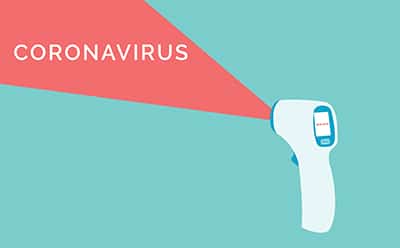As some states begin to loosen restrictions aimed at slowing the spread of COVID-19, employers are eager to get back to business but also worried about potential legal liability triggered by the virus.
Drafts of legislation have begun to make the rounds in the U.S. Senate to provide a shield for employers against what Senate Majority Leader Mitch McConnell has been quoted as calling a “second pandemic” of litigation. He and other Republican leaders want liability protection to be a part of any new coronavirus relief measures, but Democratic leaders have voiced opposition to the idea.
Brad R. Kolling, an attorney with the Felhaber Larson law firm in Minneapolis, Minnesota, says it will be interesting to see what kind of protection senators have in mind. The workers’ compensation system already provides employers with protection against at least some potential COVID-related claims.
Employees who can show they contracted COVID-19 at work have suffered a workplace illness, and the remedy is workers’ compensation, not a lawsuit. An employer would have to be guilty of gross negligence, which is a high bar, or an intentional act before an employee could file a lawsuit.
Kolling says most states’ workers’ comp systems provide well-established and finite benefits, meaning the liabilities for employers are well-defined and limited. The workers’ comp system keeps claims “out of the hands of juries to award large damage sums,” he says.
“I’m curious to see what this legislation is going to look like,” Kolling says, adding that it will be interesting to see what any new law may provide on the federal level that employers don’t already have on the state level. “Stay tuned,” he says.
Illness Not the Only Risk
The risk of employees contracting COVID-19 isn’t the only liability issue for employers. Jo Ellen Whitney, an attorney with the Davis Brown Law Firm in Des Moines, Iowa, says privacy and discrimination also are concerns.
Whitney says the employers she works with are “terrified” their efforts to protect employees’ safety will cause them to run afoul of the antidiscrimination laws enforced by the Equal Employment Opportunity Commission (EEOC).
The EEOC recently issued guidance aimed at clarifying what questions employers can ask and what actions they can take in light of the pandemic. For example, the agency has said employers can screen workers for fever and ask about any COVID-like symptoms, but employers are still worried about privacy and discrimination claims employees may eventually make that stem from those actions.
Whitney says the employers she works with aren’t trying to turn up information about any disability or other legally protected characteristic of an employee. They just want to make sure no one brings COVID-19 in.
Whitney contrasts the guidance from the EEOC with that coming from the Occupational Safety and Health Administration (OSHA). The EEOC guidance may not be as clear-cut.
The employers Whitney works with understand the rules OSHA enforces and have a good sense of what the general duty clause of the Occupational Safety and Health (OSH) Act means. That’s the clause requiring employers to provide a workplace free of recognized hazards.
“The stumbling block is the EEOC,” Whitney says. With OSHA, the rules are “black and white—you will do this and you will do that,” Whitney says. But with the EEOC, the answer is “it depends.” Instead of being clearly black and white, “the EEOC is the very definition of gray,” she says.
Avoiding Liability
Regardless of whether any liability protection passes, employers need to plan their reopenings carefully, Steven L. Brenneman, an attorney with Fox, Swibel, Levin & Carroll, LLP in Chicago, says.
“Employers whose workplaces have been closed need to be planning now for a reopening regardless of whether any legislative protection against COVID-19 liability will be made law,” Brenneman says. “Even if some liability shield passes, it will likely be tied to an employer’s adherence to existing federal, state, and local health guidelines.”
Brenneman says there’s no one-size-fits-all when preparing a workplace to reopen. “What is reasonable and acceptable for an office environment will be different from a retail environment, and different still for a manufacturing plant,” he says. “Staggered start times, barriers to allow distancing, temperature screens, protective equipment, and other measures are likely to be part of many workplaces going forward.”
Philip R. Bruce, an attorney with McAfee & Taft in Oklahoma City, Oklahoma, says employers failing to take steps to protect employees face liability if they are investigated by OSHA. But employers also “face a web of employment laws that can create potential liability,” he says. Besides the OSH Act, employers have to adhere to state laws, regulations, and executive orders.
Employers also need to follow guidance related to other laws, such as the Fair Labor Standards Act, the Americans with Disabilities Act, Title VII of the Civil Rights Act of 1964, and the Age Discrimination in Employment Act, Bruce says.
As for what kind of legislation employers might expect, Bruce says McConnell wants to require some type of liability shield if the Senate passes another aid package. But unless that happens, the best practice for employers is to follow guidance from OSHA, the EEOC, the U.S. Department of Labor, the U.S. Centers for Disease Control and Prevention (CDC), and other government entities when making COVID-19-related employment decisions.
“Employers should be vigilant about putting in the right policies and practices as they make decisions and make sure they try to follow those policies and practices as objectively as possible,” Bruce says.
Tammy Binford writes and edits news alerts and newsletter articles on labor and employment law topics for BLR web and print publications.
The post Liability on the Minds of Employers, Lawmakers as Businesses Reopen appeared first on HR Daily Advisor.
